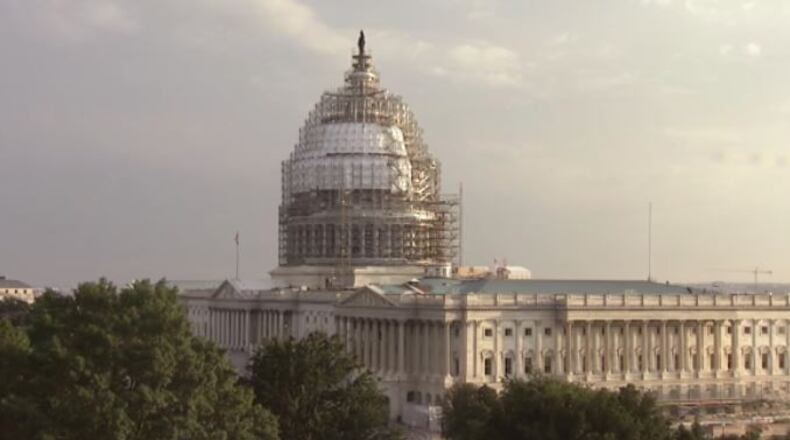As July comes to a close, the Congress has little to show in terms of progress on the budget for next year, as instead of Republican plans for a busy month of legislative floor action on spending bills, the entire process ground to a halt in a dispute over the Confederate Flag in the House and filibusters by Democrats in the Senate.
"Yes, it is our intention to get back to the appropriations process as soon as possible," said House Majority Leader Kevin McCarthy (R-CA) earlier this month, after a flap over the Confederate Flag had derailed a budget bill that dealt in part with the National Park Service.
But that never happened.
It's not how Republicans had originally envisioned this summer, with the House and Senate both under GOP control, as the Congress will once again not get its spending work done by October 1, the start of the new fiscal year.
The last time lawmakers completed their budget work on time was in 1996, when Republicans were in charge. Democrats were able to get everything done in 1994.
That's it in the last 21 years.
Of the 12 spending bills that fund the operations of the federal government, six of them have been approved by the House.
None have come up for a vote in the Senate; Democrats vowed to use the filibuster against any spending bill until Republicans agreed to add billions in spending for both military and domestic spending.
Only one spending bill came to the Senate floor, as Republicans brought up the defense spending bill in mid-June; Democrats blocked it.
Back in the House, while there was talk about some kind of deal related to the Confederate Flag, nothing happened, and GOP leaders did not bring up a series of bills that had been approved by the Appropriations Committee.
"We are in the midst of a constructive and bipartisan conversation on how we can resolve these issues," Speaker John Boehner said about the Confederate Flag.
Republicans were worried about more amendments on spending bills that might seek to rein in and restrict symbols of the Confederacy found in the U.S. Capitol building and in other federal arenas.
"Even General Robert E. Lee recognized that symbols of the Confederacy are symbols of treason — which is why he asked that they not appear in his funeral," said Rep. Jared Huffman (D-CA), whose plans to limit the National Park Service sale and display of the Confederate Flag led the GOP to stop work on a spending bill dealing with that agency.
"My amendments were intended to help move us in the direction of reconciliation, unity, and justice," Huffman said early in July.
"The United States Congress in 2015 should be at least as forward-looking as Robert E. Lee was in 1869," the Democrat added.
Democrats also this month started pressing for action on a legislative update to the Voting Rights Act, with some suggesting that it be tied to any agreement on the Confederate Flag.
"We are now segueing from a conversation about the flag to a conversation about voting rights," said House Democratic Leader Nancy Pelosi, though action on that issue seems like a long shot at best.
What it means is that when the House returns to session after Labor Day, lawmakers will have to quickly move to approve a stop-gap budget to keep the government running and avoid a government shutdown.
That was not in the plans of GOP leaders after they won control of the Senate last year - but it's a reminder - when you don't have 60 votes in the Senate, it is not easy to move any legislation forward.
Democrats have been lucky through the years, they have had more than 60 votes in the Senate on several occasions, most recently after the 2008 elections, which allowed them to approve the Obama health law.
Democrats had 76 Senators after the 1936 elections, as they took political advantage of Roosevelt's New Deal; the 1958 elections gave Democrats 65 Senators, which they increased to 66 in both 1962 and 1964.
As for Republicans, other than when they had 55 Senators in the mid-1990's during the Republican Revolution, the GOP has not had over 60 Senators since - 1906.
About the Author
The Latest
Featured



